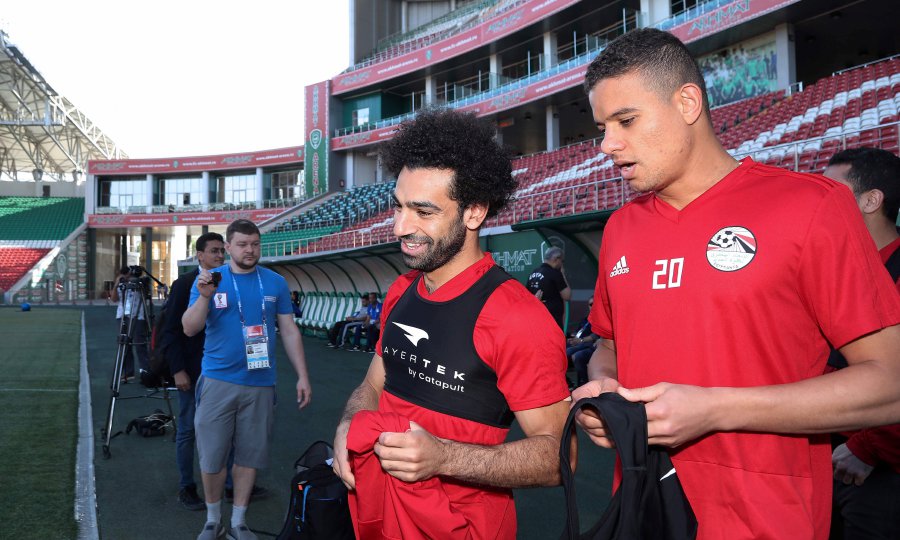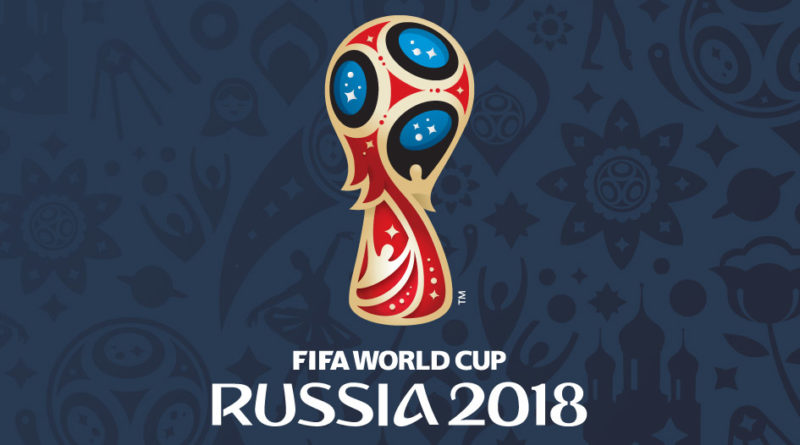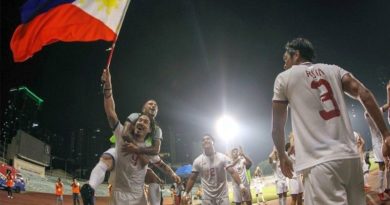FIFA WORLD CUP RUSSIA 2018: Ramadan fast sparks debate ahead of World Cup

.
.
CAIRO: Should top athletes fast during Ramadan? The question has provoked an often heated debate in Muslim countries, particularly as national teams prepare for the 2018 World Cup.
For Egypt, Tunisia, Saudi Arabia, and Morocco – four Muslim-majority countries competing in this year’s World Cup in Russia – the end of the Muslim holy month on Thursday coincides with the tournament’s kick-off.
Throughout Ramadan, observant Muslims are expected to abstain from eating and drinking from sunrise to sunset.
The traditional fast has long proved divisive among players, fans, coaches and preachers – and this year was no different.
In the lead up to World Cup play, Egypt’s failure to win any of its pre-tournament friendly matches – three of which were played during Ramadan – brought strong criticism from its fans.
But despite their lacklustre performance, The Pharaohs remained “determined” to fast the entire month, according to a statement put out by the Egyptian Football Association in late May.
After the team’s 0-0 draw against Colombia on June 1, The Pharaohs’ Argentinian coach Hector Cuper said the Ramadan fast had “affected the players” performance.
Cuper’s comments came shortly after Egyptian superstar forward Mohamed Salah was injured while playing for Liverpool in the European Champions League final.
An observant Muslim, Salah decided not to fast ahead of the May 26 match in Kiev against Real Madrid – which Liverpool lost 3-1.
A Kuwaiti sheikh said Salah’s injured shoulder – which kept him out of the remaining friendly matches – was “divine punishment”.
But religious figures and citizens across the region rushed to defend Salah – beloved both in Egypt and across the Arab world.
In Saudi Arabia – home to Islam’s two holiest sites – the kingdom’s football federation sparked controversy earlier this year when it ruled players could abstain from the fast if they applied for a “permit”.
The decision angered Saudis, who denounced it on social media.
But prominent religious leader Saleh al-Maghamsi upheld the ruling, saying Saudi players headed to the World Cup had “the right not to fast, if they want, because they will be travelling”.
Travel is among several conditions that absolve practising Muslims from the normally obligatory fast.
In Tunisia, players organised their schedule around fasting hours, training just before iftar – the breaking of the fast.
“Sport and fasting is a difficult equation, it’s also an old debate that will not end,” wrote Tunisian French-language newspaper La Presse.
“Maybe science will make some progress and we’ll come up with new ways for high-level athletes to observe Ramadan without that question arising too often,” it wrote.
Well aware of the delicate debate, Morocco’s head coach Herve Renard told a press briefing at the end of May that he “did not want to deal with it, deliberately, because it is a sensitive subject”.
The Higher Council of Ulema, the only religious body in Morocco that can issue fatwas, has also remained silent on the matter.
The highest Sunni religious authority in Egypt, Al-Azhar, has taken a measured approach to the topic.
“If athletes have difficulty reaching the limit of their ability to combine fasting and the fulfilment of their duties, they can break their fast,” Al-Azhar’s International Center for Electronic Fatwa told AFP.
But Egyptian sports doctor Sherif Azmy thinks otherwise.
He insists that fasting, when well-planned, does not interfere with athletic performance.
“For an athlete, and especially a footballer, it is necessary during Ramadan to maintain a balanced diet,” he said.
Despite the daily fast, adequate proportions of protein, fat, sugar, carbohydrates and especially water should be consumed in three staggered meals, he said.
Azmy said FIFA’s guidelines also make room for fasting players.
The rules, he said, indicate that “no match should be held until three or four hours after iftar,” allowing players enough time to break their fast well ahead of the game. — AFP










